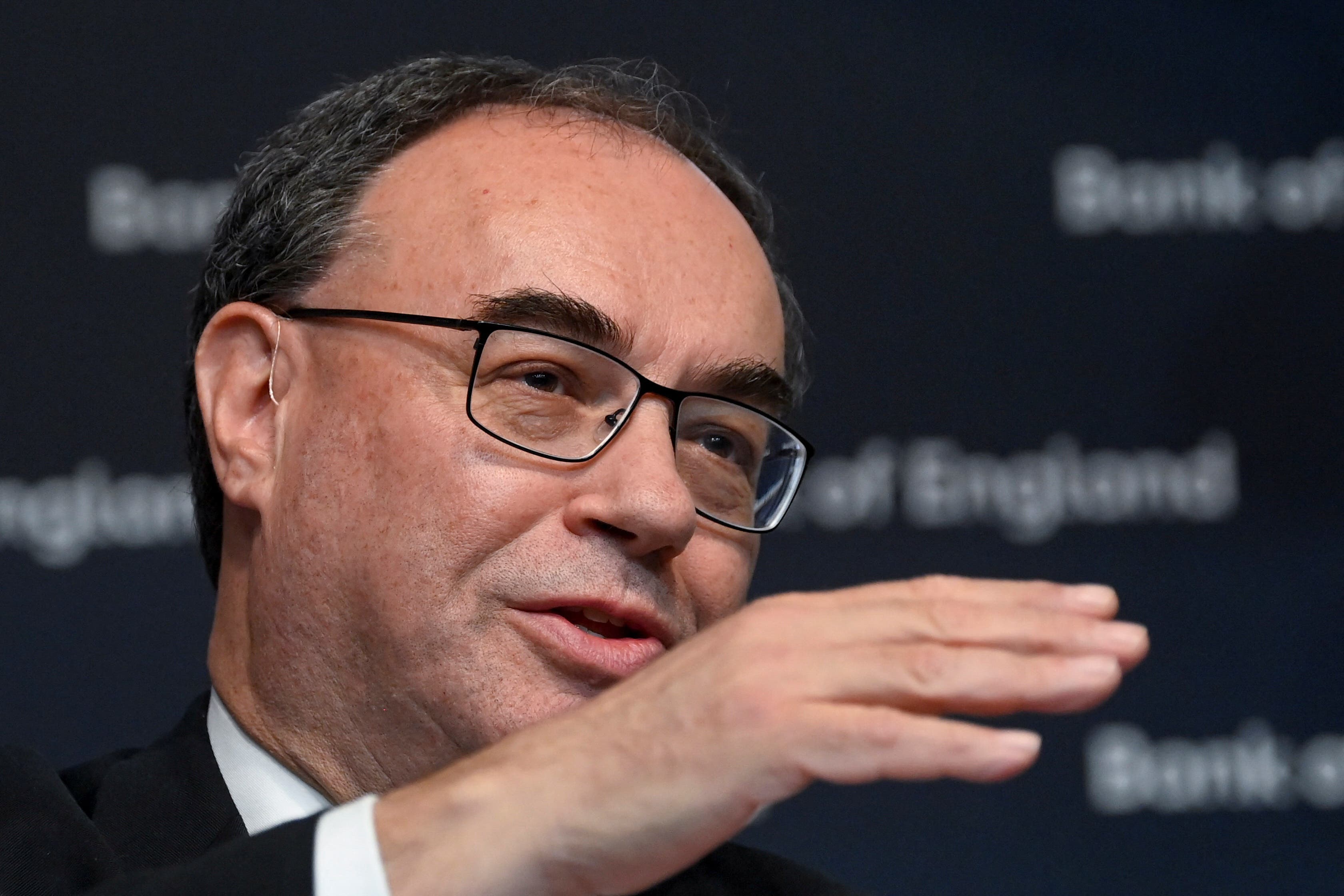Lenders have ‘obligation’ to support struggling borrowers, Bank governor says
In a meeting about the UK’s financial stability, Andrew Bailey told the Treasury Committee that banks are much stronger financially than in the past.

Your support helps us to tell the story
From reproductive rights to climate change to Big Tech, The Independent is on the ground when the story is developing. Whether it's investigating the financials of Elon Musk's pro-Trump PAC or producing our latest documentary, 'The A Word', which shines a light on the American women fighting for reproductive rights, we know how important it is to parse out the facts from the messaging.
At such a critical moment in US history, we need reporters on the ground. Your donation allows us to keep sending journalists to speak to both sides of the story.
The Independent is trusted by Americans across the entire political spectrum. And unlike many other quality news outlets, we choose not to lock Americans out of our reporting and analysis with paywalls. We believe quality journalism should be available to everyone, paid for by those who can afford it.
Your support makes all the difference.Mortgage debt and home repossessions are much lower than during previous financial crises, the Bank of England’s governor said as he emphasised lenders’ “obligation” to support borrowers.
In a meeting about the UK’s financial stability, Andrew Bailey told the Treasury Committee that banks are much stronger financially now than in the past.
He said: “Overall mortgage debt service levels are lower than they were at points in history when we had stress – before the financial crisis and in the early ’90s.
“However, I do recognise that one of the big distinctions between now and some of the points in the past is that we are in a cycle of rising interest rates.”
There are now fewer mortgages with high loan-to-value (LTV) rates – when people borrow more against the value of their property – Mr Bailey said.
Banks are under an obligation now to handle customers with payment problems very differently to the way they did in the past, which is why are seeing fewer repossessions
“I do think that the Financial Policy Committee’s (FPC) mortgage tools, particularly the flow limit, has beneficially limited the number of households with very high loan-to-value ratios, who would be much more likely to be experiencing problems.”
The FPC introduced flow limits in 2014 to limit the number of mortgages with a high LTV ratio to 15% of a lender’s new mortgage lending. It also introduced affordability rests to better gauge borrowers’ ability to repay their loans.
Mr Bailey said: “Banks are under an obligation now to handle customers with payment problems very differently to the way they did in the past, which is why we are seeing fewer repossessions, and I would expect to see fewer going forward.
“They also have the capital resources to do so. One of the problems we saw in the financial crisis is that banks were absolutely up against it, let alone households.”
The governor said market conditions have “pretty much” returned to normal after the mini-budget sparked chaos in the gilts market, causing mortgage rates to surge.
The average rates on two- and five-year fixed-rate mortgages jumped to more than 6% in October for the first time since 2008.
But Mr Bailey said fixed-rate mortgages have since come down and the “risk premium” – the higher return rates demanded in countries where there is greater economic instability – in the UK interest rate environment has gone.
But he admitted there is “something of a hangover effect” following the turbulence of late last year.
“It is going to take some time to convince people that we are back to where we were before,” he said.
Mr Bailey and the head of the Prudential Regulation Authority, Sam Woods, also warned the committee over the risks of the Government’s proposed insurance rules reforms.
Mr Woods said relaxing insurance regulations increases the risk pension providers run out of capital resources but that is a “trade-off” the Government has made.
“The way it comes home to roost is if there is not enough capital backing pensions. I would say it is highly likely that comes back to the public purse if that occurs”, Mr Woods said.